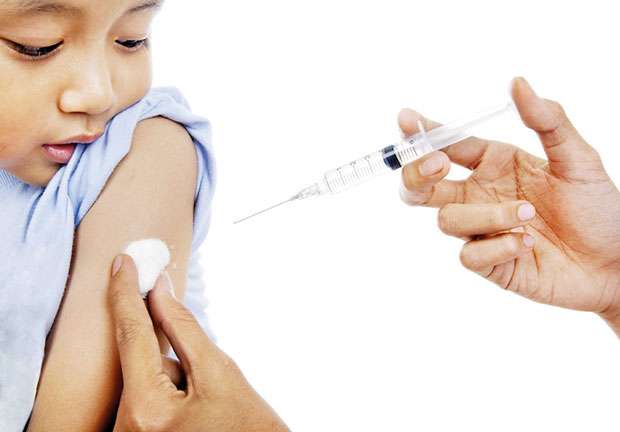Reply To:
Name - Reply Comment
Last Updated : 2024-04-18 19:11:00

 International Infection Prevention Week (IIPV) falls onto the 3rd week of October annually. According to the World Health Organization, infectious diseases are the leading cause of death in developing countries and the second major cause of death worldwide, after cardiovascular diseases. Therefore, infections have the ability to cause major damage to an individual as well as the society as a whole. That is why we decided to consult Dr. Kushlani Jayatilleke, Consultant Microbiologist, Sri Jayawardenapura Hospital and President of the Sri Lanka College of Microbiologists, in this week’s Health Capsule to enlighten readers about the exceedingly timely topic of infection prevention.
International Infection Prevention Week (IIPV) falls onto the 3rd week of October annually. According to the World Health Organization, infectious diseases are the leading cause of death in developing countries and the second major cause of death worldwide, after cardiovascular diseases. Therefore, infections have the ability to cause major damage to an individual as well as the society as a whole. That is why we decided to consult Dr. Kushlani Jayatilleke, Consultant Microbiologist, Sri Jayawardenapura Hospital and President of the Sri Lanka College of Microbiologists, in this week’s Health Capsule to enlighten readers about the exceedingly timely topic of infection prevention.
Infections
Before talking about prevention of infections, it is important to identify what an infection is. An infection is a disease condition caused by a micro organism which is not visible to the naked eye. Our body contains more micro organisms than it contains human cells, most of which actually help us, so not all these micro organisms are harmful.
Infections can be categorised in a number of ways. These infections can be classified as bacterial, viral, parasitic and fungal. They can also be grouped according to the site of the infection; infections in the upper respiratory tract as upper respiratory infections, infections in the urinary tract as urinary infections etc. Infections on the superficial parts of the body are called superficial infections, while the infections in deep structures like bones and joints are called deep infections.
Spread of infection
Infections have survived through the passage of time by spreading from one person to another. Contrary to what people believe in, the mode of the spreading of the disease differs according to the organism and the infection that it causes. Respiratory tract infections are commonly spread through air droplets that are released when the patient coughs or sneezes. Also, if the patient sneezes to the open hand, then shakes hands with another person without washing his hand the second person can get contaminated.
Organisms causing infections in our digestive system commonly enter the body through food and water that are contaminated by infected faecal matter. In addition, flies too can spread infection in the digestive system through contaminating food.
There are infections which are chiefly transmitted through sexual contact. Syphillis, gonrrhoea and HIV are examples.
Some other infections are spread through blood given from outside, as in unsafe transfusions, (which are extremely rare in Sri Lanka due to safety precautions) and in reusing needles contaminated with blood from an infected patient, or in healthcare setting and contaminated needle prick injuries.
There are some other infections where the pathogenic organism is transferred from one person’s body to another by a vector. Dengue, which is causing much devastation in our country, and Malaria are examples.
Prevention of infections
As the spread of the infections is individualised to the type of infection, it stands to reason that the methods of prevention of the spread of the organisms also differ according to the infection.
In preventing the spread of respiratory infections and infections like chickenpox which are spread through droplets, it’s important to avoid crowds where you can infect the others with the disease. Usually the first symptoms to appear in these infections are fever and malaise, so seeking treatment early, getting diagnosed and staying at home in order to take plenty of bed rest are advisable.
Since influenza in most cases resolves on its own, adequate fluid and bed rest bring the best cure. If you have a cough or are sneezing and have to be in the presence of others, the best option is to use a face mask.
Cough etiquette
If you do not have a facemask and have to cough or sneeze in public, you have to follow what is called the ‘Cough etiquette’. If you can, cover your nose and mouth with a disposable tissue paper while coughing and sneezing, in order to prevent the droplets from escaping. If you do not have a tissue or a handkerchief, use the back of your arm and not the hands to cover your face, since you can easily contaminate the surfaces that you touch after coughing by accidentally touching them with your hand.
Proper hygiene
Many of the digestive tract infections can be prevented by using proper water sealed toilets, and by washing and drying hands well after using the washroom. Food hygiene is crucial in preventing digestive tract infections. Well cooked, home prepared meals are ideal. Even though salads are good for your health, you have to make sure to clean the raw vegetables thoroughly before preparing salads, especially during the rainy season where the vegetables can be easily contaminated by the flood of dirty water. Keeping the food covered at all times while preparing also will help prevent the contamination of food.
Hands are a major tool that spread infection; therefore hand washing before preparation as well as consumption of meals is important.
Refrigeration
If the food will not be consumed soon after preparation, it is advisable to store them in a refrigerator at 2 to 8 degrees Celsius, since in warm countries like Sri Lanka, bacteria can multiply quickly and spoil food. Food can be reheated before they are consumed, but reheating more than once is not recommended. Alternatively, food can be refrigerated and stored in small containers as single helpings, so there is no need of reheating.
Raw food and cooked food should not be shelved near one another because the raw food can contaminate the solid food.
Mosquitoes
In order to prevent vector borne infections like dengue, prevention of the spread of the vector is important. Checking for places where water gets collected in your surroundings and inside your house and destroying them will prevent the growth of mosquitoes through destroyal of their breeding places. While mosquito repellents might help in keeping the vector away, mosquito nets are of not much practical use especially when it comes to Dengue, since the mosquito carrying the dengue virus usually bites humans during day time.
In the hospital
Hospitals are grounds which have a higher risk of giving you an infection, especially because hospitals contain many patients with a variety of infections. Therefore, don’t bring young children and immune-compromised people to hospitals unless absolutely necessary. Minimising the contact of the surfaces and objects in the hospital and washing hands soon after returning from the hospital is recommended.
Blood borne infections spread through transfused blood is extremely rare now due to the vigorous screening process of donated blood before transfusing. If you have had an accidental injury from a used needle, or have had high risk sexual behaviours in the past, seeking medical advise immediately is recommended.
Vaccination
Immunization of children from a younger age has helped Sri Lanka prevent many vaccine preventable infections and position us among the developing countries with the best health indicators. Therefore, the timely vaccination of your child is highly recommended. In addition, there are some vaccines available in the private sector like the flu vaccine and the pneumococcal vaccine, especially for people who have low immune systems.

Add comment
Comments will be edited (grammar, spelling and slang) and authorized at the discretion of Daily Mirror online. The website also has the right not to publish selected comments.
Reply To:
Name - Reply Comment
On March 26, a couple arriving from Thailand was arrested with 88 live animal
According to villagers from Naula-Moragolla out of 105 families 80 can afford
Is the situation in Sri Lanka so grim that locals harbour hope that they coul
A recent post on social media revealed that three purple-faced langurs near t